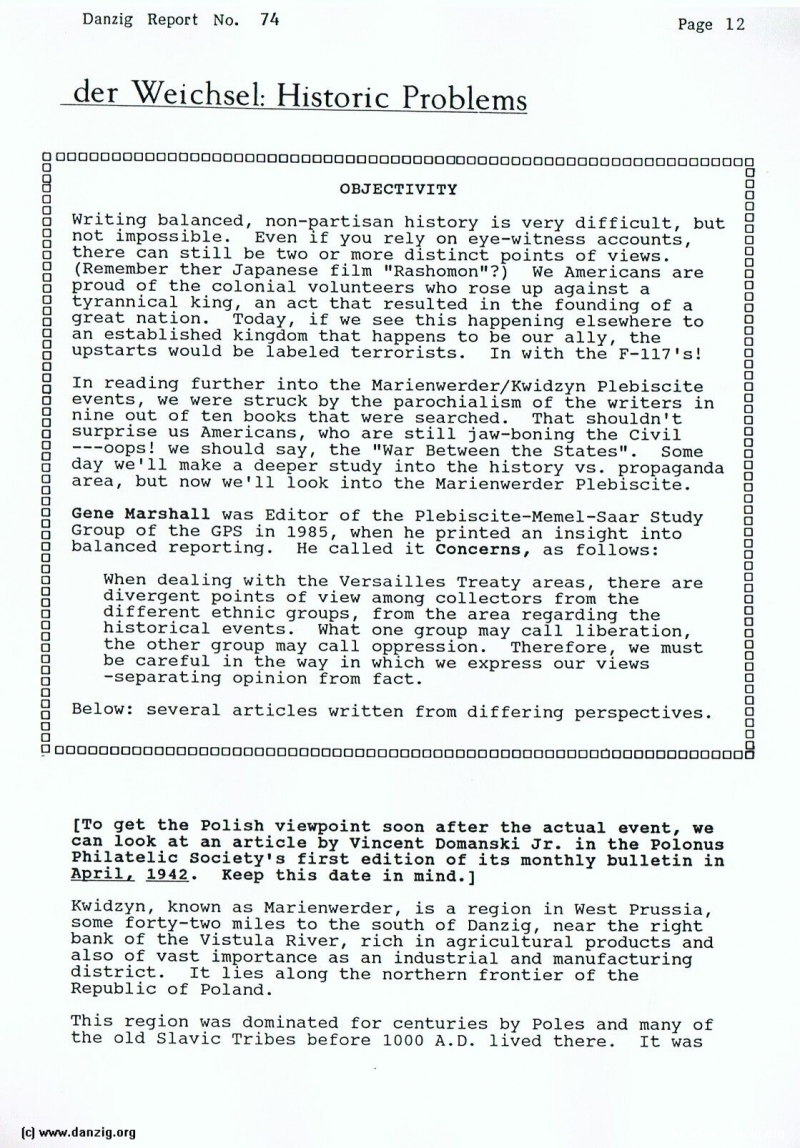
der Weichsel: Historic Problems
OBJECTIVITY
Writing balanced, non-partisan history is very difficult, but not impossible. Even if you rely on eye-witness accounts,there can still be two or more distinct points of views. (Remember ther Japanese film “Rashomon”?) We Americans are proud of the colonial volunteers who rose up against a tyrannical king, an act that resulted in the founding of a great nation. Today, if we see this happening elsewhere to an established kingdom that happens to be our ally, the upstarts would be labeled terrorists. In with the F—117’s!
In reading further into the Marienwerder/Kwidzyn Plebiscite events, we were struck by the parochialism of the writers in nine out of ten books that were searched. That shouldn’t surprise us Americans, who are still jaw—boning the Civil oops! we should say, the “War Between the States”. Some day we’ll make a deeper study into the history vs. propaganda area, but now we’ll look into the Marienwerder Plebiscite,
Gene Marshall was Editor of the Plebiscjte - Memel - Saar Study Group of the GPS in 1985, when he printed an insight into balanced reporting. He called it Concerns, as follows: When dealing with the Versailles Treaty areas, there are divergent points of view among collectors from the different ethnic groups, from the area regarding the historical events. What one group may call liberation, the other group may call oppression. Therefore, we must be careful in the way in which we express our views separating opinion from fact.
Below: several articles written from differing perspectives.
[To get the Polish viewpoint soon after the actual event, we can look at an article by Vincent Domanski Jr. in the Polonus Philatelic Society’s first edition of its monthly bulletin in April, 1942. Keep this date in mind.)
Kwidzyn, known as Marienwerder, is a region in West Prussia, some forty-two miles to the south of Danzig, near the right bank of the Vistula River, rich in agricultural products and also of vast importance as an industrial and manufacturing district. It lies along the northern frontier of the Republic of Poland.
This region was dominated for centuries by Poles and many of the old Slavic Tribes before 1000 A.D. lived there. It was
Danzig Report Nr. 74 - January - February - March - 1992, Page 12.
Hits: 3323
Added: 01/07/2015
Copyright: 2025 Danzig.org

